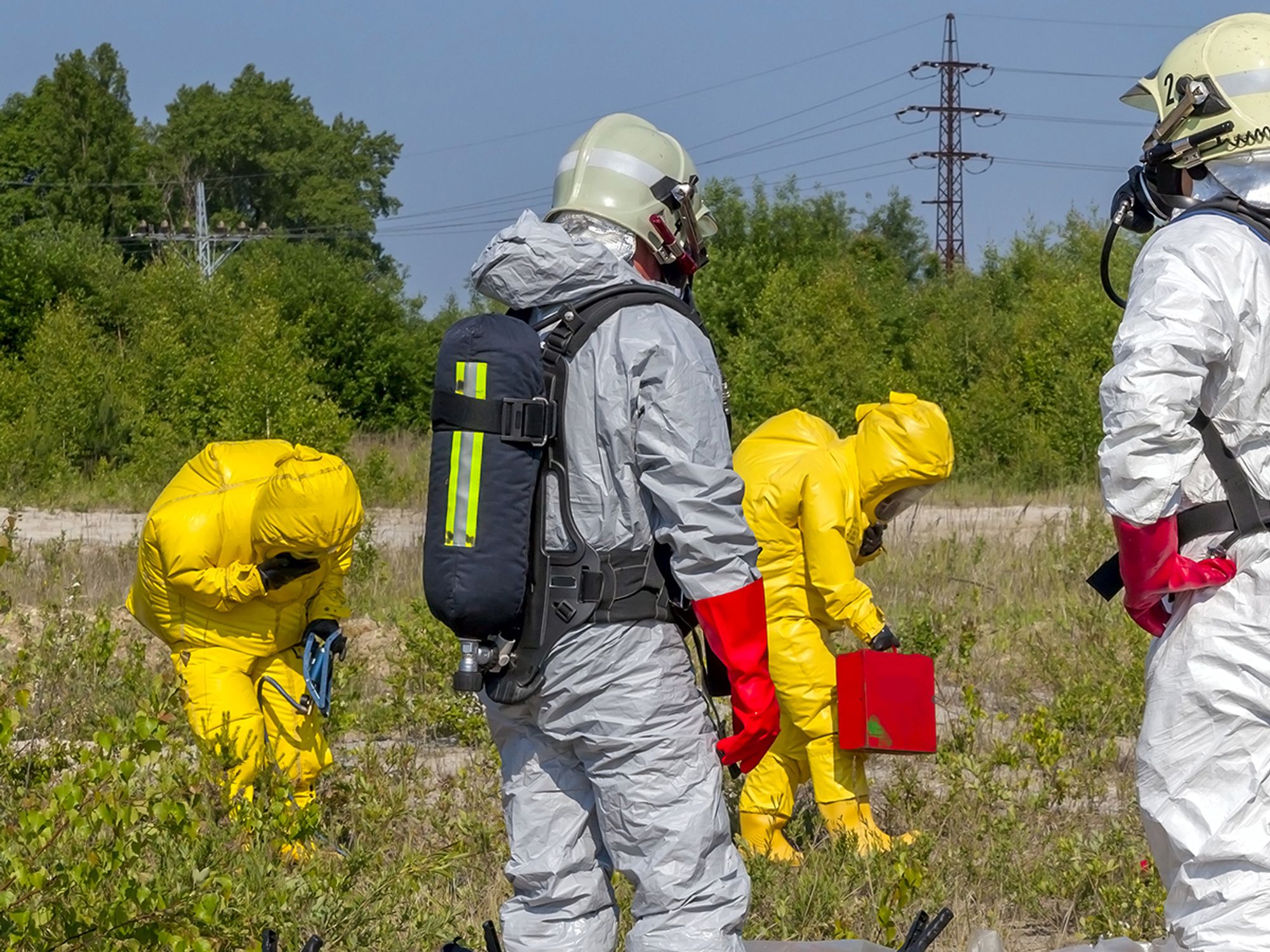
Be Part of the Ultimate Safety & Compliance Community
Trending news, knowledge-building content, and more – all personalized to you!
:
|

Before any work on a hazardous waste cleanup site, the employer must provide employees with initial training based on their tasks and operations and the anticipated exposures (see the table below).
Employees who have equivalent experience and skills from previous work experience and/or training do not have to receive the initial training, provided that the employer can verify it through documentation or certification. However, equivalently trained employees who are new to a site must receive site-specific training before site entry.
| Trainee type | Required initial and refresher training | Regulation |
|---|---|---|
| General waste site employees (e.g., equipment operators or general laborers) |
| Subparagraph (e)(3)(i) of 29 CFR 1910.120 or 1926.65 |
| Employees occasionally onsite for a limited task (e.g., groundwater monitoring or land surveying) with minimal exposure (also called non- routine site workers) |
| Subparagraph (e)(3)(ii) of 1910.120 or 1926.65 |
| Employees regularly onsite who are not exposed to health hazards (also called routine site workers) |
| Subparagraph (e)(3)(iii) of 1910.120 or 1926.65 |
| Employees under (e)(3)(ii) or (iii) who become general site workers under (e)(3)(i) |
| Subparagraph (e)(3)(iv) of 1910.120 or 1926.65 |
| Supervisors of general site employees (e.g., equipment operators or general laborers) |
| Subparagraph (e)(4) of 1910.120 or 1926.65 |
| Supervisors of non-routine site worker |
| Subparagraph (e)(4) of 1910.120 or 1926.65 |
| Supervisors of routine site workers |
| Subparagraph (e)(4) of 1910.120 or 1926.65 |
Employees who receive the specified training must receive a written certificate from their instructor (or the head instructor) and trained supervisor upon successful completion of that training. A written certificate shall be given to each person so certified.
If the employee goes to work at a new site, the training does not need to be repeated; however, the employee must receive the necessary additional site-specific training needed to work safely at the new site.
All employees must receive eight hours of annual refresher training as indicated in the table above. This training may include any critique of incidents that have occurred in the past year, examples of related work, and other relevant topics.
Notes:

Before any work on a hazardous waste cleanup site, the employer must provide employees with initial training based on their tasks and operations and the anticipated exposures (see the table below).
Employees who have equivalent experience and skills from previous work experience and/or training do not have to receive the initial training, provided that the employer can verify it through documentation or certification. However, equivalently trained employees who are new to a site must receive site-specific training before site entry.
| Trainee type | Required initial and refresher training | Regulation |
|---|---|---|
| General waste site employees (e.g., equipment operators or general laborers) |
| Subparagraph (e)(3)(i) of 29 CFR 1910.120 or 1926.65 |
| Employees occasionally onsite for a limited task (e.g., groundwater monitoring or land surveying) with minimal exposure (also called non- routine site workers) |
| Subparagraph (e)(3)(ii) of 1910.120 or 1926.65 |
| Employees regularly onsite who are not exposed to health hazards (also called routine site workers) |
| Subparagraph (e)(3)(iii) of 1910.120 or 1926.65 |
| Employees under (e)(3)(ii) or (iii) who become general site workers under (e)(3)(i) |
| Subparagraph (e)(3)(iv) of 1910.120 or 1926.65 |
| Supervisors of general site employees (e.g., equipment operators or general laborers) |
| Subparagraph (e)(4) of 1910.120 or 1926.65 |
| Supervisors of non-routine site worker |
| Subparagraph (e)(4) of 1910.120 or 1926.65 |
| Supervisors of routine site workers |
| Subparagraph (e)(4) of 1910.120 or 1926.65 |
Employees who receive the specified training must receive a written certificate from their instructor (or the head instructor) and trained supervisor upon successful completion of that training. A written certificate shall be given to each person so certified.
If the employee goes to work at a new site, the training does not need to be repeated; however, the employee must receive the necessary additional site-specific training needed to work safely at the new site.
All employees must receive eight hours of annual refresher training as indicated in the table above. This training may include any critique of incidents that have occurred in the past year, examples of related work, and other relevant topics.
Notes: